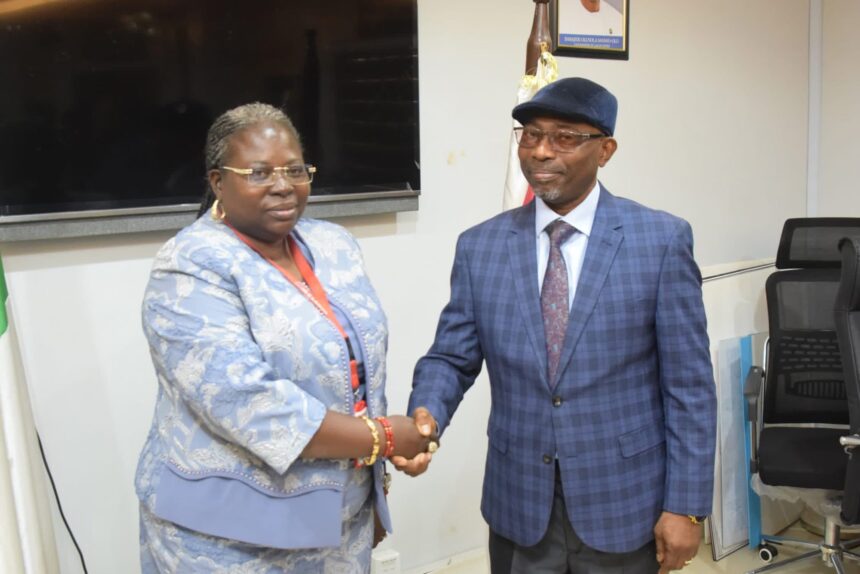The Lagos State Attorney-General and Commissioner for Justice, Mr. Lawal Pedro, SAN, on Thursday, hosted delegations from the Nigeria Labour Congress
(NLC) and the International Federation of Women
Lawyers (FIDA) on separate courtesy visits at the
Ministry of Justice Conference Room, Alausa, Ikeja.
Leading the NLC delegation, the Chairperson of the
Lagos Chapter, Comade Funmi Sessi, engaged in discussions aimed at strengthening the working relationship between the State Ministry of Justice and the NLC, particularly in addressing legal matters and ensuring compliance with law and order among
affiliate unions.
In his remarks, Mr. Pedro emphasised the Lagos State Government’s commitment to workers’ welfare under the leadership of Governor Babajide Sanwo-Olu. He highlighted the successful implementation of the new minimum wage, which surpasses that of other states,
as well as the introduction of a remote work programme designed to cushion the effect of the harsh economic challenges in the workforce.
Pedro further explained that innovation remains a key pillar of the administration, with significant advancements in transportation, road infrastructure,
and other development initiatives.
Similarly, the Attorney-General welcomed the FIDA delegation, led by Barrister Veronica Eze, who visited to brief him on the upcoming FIDA Multi-Stakeholder Dialogue scheduled for February 27-28, 2025 inLagos.
The event aims to facilitate discussions on critical issues surrounding gender-based violence and explore effective strategies to combat the menace in the state.
Pedro reiterated Lagos State’s proactive stance in addressing domestic and sexual violence, noting that the state remains ahead of others in its legislative and policy efforts.
He disclosed that a bill proposing amendments to the Lagos State Domestic Violence Law is currently under consideration, reinforcing the state’s commitment to providing stronger legal frameworks for the protection of vulnerable groups.
He further expressed optimism that Lagos would continue to serve as a model for other states in the fight against gender-based violence and the pursuit of justice and good governance.


